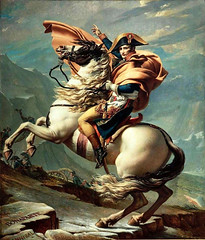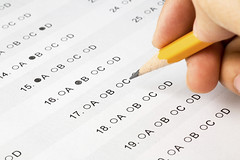AP Psychology Personality Flashcards
Terms : Hide Images [1]
| 8789063766 | Sigmund Freud | Founder of psychoanalysis |  | 0 |
| 8789063767 | Psychoanalytic Theory | Behavior is due to unconscious motives and conflicts, Early childhood experiences determine personality |  | 1 |
| 8789063768 | Unconscious Mind | controls the phenomena of repressed feelings, automatic skills, subliminal perceptions, thoughts, habits and automatic reactions as well as possibly holding emotional complexes, phobias and desires. |  | 2 |
| 8789063769 | Id | Ruled by the "Pleasure Principle" and has no values, morality, or logic (animal instincts) |  | 3 |
| 8789063770 | Ego | Ruled by the "Reality Principle" and balances the id and superego by being organized, rational, and postponing gratification |  | 4 |
| 8789063771 | SuperEgo | Ruled by the "Morality Principle" and is the opposite of the Id because it is the internal, parental voice with rules and values |  | 5 |
| 8789063772 | Free Association | patient freely exposes his/her ideas, impressions, etc. |  | 6 |
| 8789063773 | Freudian Slips | Slips of the tongue that expose the unconscious |  | 7 |
| 8789063774 | Psychosexual Development | sequential and discontinuous stages with changing erogenous zone and conflict in each stage |  | 8 |
| 8789063775 | Oral stage | Age: 0-1, Erogenous Zone: Mouth, Fixation: Smoking, Over-eating |  | 9 |
| 8789063776 | Anal stage | Age: 1-3, Task: Potty Training, Fixation: Anal retentive or Anal Expulsive |  | 10 |
| 8789063777 | Latency stage | Age: 6 to puberty, Task: develop relationships with same sex peers to strengthen gender identity |  | 11 |
| 8789063778 | Phallic stage | Age: 3-5, Task: Gender Identity, Fixation: Narcissism, Homosexuality |  | 12 |
| 8789063779 | Genital stage | Age: Puberty to death, Task: Find a hetero-sexual relationship, Fixation: doesn't occur at this stage but old conflicts will arise |  | 13 |
| 8789063780 | Penis Envy | Freudian theory that girls become upset and scarred because because they don't have a penis and a penis is a key to being successful. Phallic Stage |  | 14 |
| 8789063781 | Electra Complex | girls sexually desire dad and hate mom but need to resolve this in order to develop a gender identity |  | 15 |
| 8789063782 | Oedipus Complex | boys sexually desire mom and hate dad but need to resolve this in order to develop a gender identity |  | 16 |
| 8789063783 | Defense mechanisms | extreme measures protect the ego from threats; operate unconsciously and deny, falsify, or distinct reality |  | 17 |
| 8789063784 | Neo-Freudians | Jung, Horney, Adler Believed that Freud put too much emphasis on sex and there needed to be more emphasis on social factors |  | 18 |
| 8789063785 | Collective unconscious | Carl Jung, A warehouse of "instinctive memories" passed down to each generation and all humans share and is made up of archetypes |  | 19 |
| 8789063786 | Archetypes | Inherited universal concepts that create the Collective Unconscious |  | 20 |
| 8789063787 | Basic Anxiety | Karen Horney, anxiety that is created by being born helpless. |  | 21 |
| 8789063788 | Womb envy | Men are envious of a women's ability to have children and therefore, they compensate with other forms of achievement. |  | 22 |
| 8789063789 | Inferiority Complex | people who compensate for feelings of inferiority (feeling like they're less than other people, not as good as others, worthless, etc.) by acting ways that make them appear superior. |  | 23 |
| 8789063790 | Projective Tests | Provide ambiguous stimuli in order to trigger the projection of one's inner dynamics Tests: Rorschach Inkblot Test, & Thematic Apperception Test (TAT), Draw a Person test |  | 24 |
| 8789063791 | Rorschach Inkblot Test | seeks to identify people's inner feelings and conflicts by analyzing their interpretations of 10 inkblots. |  | 25 |
| 8789063792 | Thematic Apperception Test | people view ambiguous pictures and then make up stories about them. |  | 26 |
| 8789063793 | Humanistic Psychologists | Carl Rogers, Abraham Maslow People develop their personality by trying to reach their full potential |  | 27 |
| 8789063794 | Self-Concept | A person has who they are, Real Self, and who they want to be, Ideal Self and a successful persoanlity has congruence |  | 28 |
| 8789063795 | Congruence | A person's Real Self and Ideal Self can merge together Part of Roger's Self-Concept Theory | 29 | |
| 8789063796 | Incongruence | When a person's Real Self and Ideal self do not match, causing anxiety. |  | 30 |
| 8789063797 | Unconditional positive regard | Defined: receiving acceptance, value, and love from others without requirements Part of Roger's Self-Concept theory in which he says it is necessary to receive from others in order to develop a healthy personality |  | 31 |
| 8789063798 | Empathy | People will try to understand one's feelings and mirror it back to them |  | 32 |
| 8789063799 | Hierarchy of Needs | Psychologist: Abraham Maslow Description: Pyramid |  | 33 |
| 8789063800 | Trait Theories | focuses on identifying how people typically behave but does NOT explain how personality developed |  | 34 |
| 8789063801 | Factor analysis | - a statistical procedure that identifies common factors among groups of items, to simplify a long list of items into a small number of dimensions -used with trait theories |  | 35 |
| 8789063802 | Self-Report Inventories | Description: a questionnaire which is used to gauge a wide range of feelings and behaviors Strengths: empirically derived Weaknesses: social desirability-people can lie and manipulate the information Tests: MMPI, CPI, 16 PF |  | 36 |
| 8789063803 | MMPI | Most extensively researched personality inventory. Used to assess mental health professions (police, nurses, doctors, pilots) |  | 37 |
| 8789063804 | Big Five Trait Theory | traits are stable in adulthood, heritability accounts for 50% of personality and can be used to predict other personal attributes | 38 | |
| 8789063805 | Openess | characteristics such as imagination and insight, and those high in this trait also tend to have a broad range of interests |  | 39 |
| 8789063806 | Conscientiousness | include high levels of thoughtfulness, with good impulse control and goal-directed behaviors. |  | 40 |
| 8789063807 | Extraversion | characterized by excitability, sociability, talkativeness, assertiveness and high amounts of emotional expressivenes |  | 41 |
| 8789063808 | Agreeableness | includes attributes such as trust, altruism, kindness, affection and other pro-social behaviors. |  | 42 |
| 8789063809 | Neuroticism | characterized by sadness, moodiness and emotional instability |  | 43 |
| 8789063810 | Social Cognitive Approach to Personality | Description: Personality is influenced between the interaction of a person's traits (including their thinking) and their social context Strengths: based on empirical evidence Weaknesses: minimizes the importance of one's inner traits, emotions, and unconscious motives Examples: Reciprocal Determinism, Locus of Control Psychologists: Bandura |  | 44 |
| 8789063811 | Reciprocal determinism | Psychologist: Bandura Defined: Personality is developed by the interaction of behavioral, cognitive, and environmental factors. How it works: Everyone has a "self-system" of skills abilities and attitudes Self-Efficacy is what can change the system |  | 45 |
| 8789063812 | External Locus of Control | The perception that chance or outside forces beyond your personal control determine your fate |  | 46 |
| 8789063813 | Internal Locus of Control | The perception that you control your own fate |  | 47 |
| 8789063814 | Self- efficacy | Defined: the belief in your own ability to deal with different situations and accomplish specific goals It is NOT self esteem which is your general sense of self worth Consequences: people with high self-efficacy are able to succeed because they have an internal locus of control | 48 | |
| 8789063815 | Compensation | Defense Mechanism where people try to overcome feelings of inferiority in one area by striving to be superior in another area Major part of Alfred Adler's theory |  | 49 |
